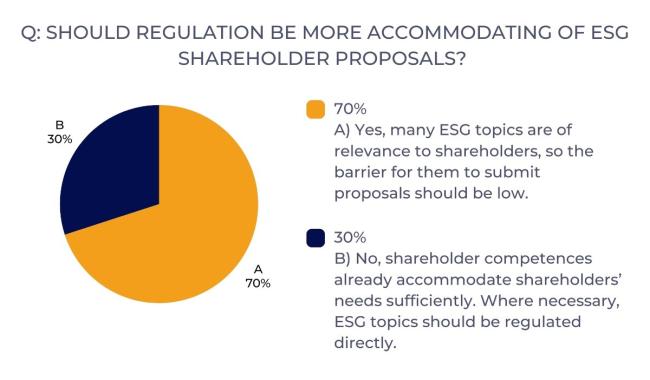Commitment Issues
Issue 14 | June 2024
Greetings from Brussels.
The Paris Agreement marked a significant milestone in global efforts to combat climate change. In the years since, it has been followed by countless reports, conferences and summits, all dedicated to reducing global emissions. Countries have set and updated ambitious emission-reduction targets, but oftentimes failed to achieve the necessary.
In parallel, corporations have created their own emission-reduction plans and made pledges to become net-zero. Among them are tech companies like Microsoft and Apple, but also fossil fuel giants like BP and Shell. Especially the latter plan to rely heavily on emission trading and carbon offsets to reach those goals, which is an issue in itself, as I discussed in this newsletter in February.
Today however, I want to focus more on the companies' net-zero strategies and the effects such pledges can have.
Making long-term commitments to reduce carbon emissions can be a powerful signal of a company's dedication to sustainability. In view of market reforms and increasingly stringent regulation, companies will be forced to adapt eventually. Companies therefore benefit from presenting themselves as front-runners with a clear plan on how they will navigate this transition. Beyond this signaling function to the markets, commitments are also an internal regulatory mechanism, ensuring that present and future management teams follow through on the promised carbon reduction strategies.
The biggest critique of such corporate pledges is that these commitments are little more than empty promises, allowing companies to appear sustainable, without actually putting in much effort to reduce emissions.
To counter these concerns, several initiatives support companies in their endeavor, while ensuring that those targets are rooted in science. Next to the CDP, which collects comprehensive environmental information of over 23,000 companies globally, the Science Based Targets initiative (SBTi) focuses specifically on providing a framework for companies to align their business with the Paris Agreement’s goals. The Transition Pathway Initiative (TPI) in turn caters mainly to investors and helps them to better understand how companies manage climate risks and how prepared they are for the transition.
Even with frameworks that are rooted in science and require detailed reporting, difficulties remain. It may be that the companies making net-zero commitments are either already on a path to reducing emissions, meaning their commitments do little more than formalize existing actions, or are companies that started out with relatively low emissions, making it easy to commit to net-zero targets.
In search of an answer to those issues, Bolton and Kacperczyk explore what motivates companies to join such commitment movements and assess the effects.
On the positive side, they find that the companies that commit do significantly lower their emissions and often set ambitious targets that go beyond what they were sure to be able to deliver anyway.
However, despite these reductions, the overall emissions in those companies’ sectors change only marginally. The companies committing so far generally have lower emissions to begin with, while those with higher emissions either do not commit or make half-hearted commitments.
To enhance the effectiveness of these initiatives, the researchers find that both internal and external corporate governance are crucial in driving commitments. Additionally, support from public policy and pressure from institutional investors is necessary to persuade more companies to join decarbonization efforts. Peer pressure also plays a role, as companies in industries with higher commitment rates are more likely to commit themselves.
The joint pressure from policy-makers, investors and peers in recent years pushed more companies to commit to decarbonization and over half of the world’s largest companies have declared net-zero targets by now.
Making a commitment is an important first step, but there are further challenges to address. Reporting of climate-related information still varies, not only between jurisdictions, but even between companies, making it difficult for investors to properly compare their efforts. Scope 3 emissions, which make up a significant part of many companies' carbon footprint, remain particularly challenging, both politically and in practice. These regulatory differences and uncertainties in turn discourage companies from fully committing to strategic changes. Finally, we should not forget about the social dimension of this transition, making sure that no one is left behind in the move towards a sustainable future.
Overall, many questions remain. I already look forward to discussing further ideas and solutions with you at the 2024 ECGI Responsible Capitalism Summit in Berlin in September, which centers around the topics I touched upon in this newsletter.
Until then I wish you an enjoyable summer and will return with a new edition of the newsletter after the ECGI Summit.
What is your outlook on corporate net-zero commitments? Let me know in the poll below.
Cordially yours,
Marleen
MINI POLL
Q: What is your stance on corporate net-zero commitments?
A) A necessary response from the corporate world in absence of more stringent global regulations.
or
B) Too often used as a greenwashing tool and not followed up by enough actions.
LAST MONTH'S POLL RESULTS...

2024 ECGI Responsible Capitalism Summit
A Decade After Paris:
Accelerating Progress Towards Net-Zero
hosted by The French Embassy in Berlin
Register here
MORE FROM ECGI...
SELECTED WORKING PAPERS:
PREVIOUS ISSUES...
In Focus Newsletter
Issue #11 - CSDDD – Too big to fail? (March 2024)
Issue #10 - Compensate or abate? (February 2024)
Issue #9 - CEO Activism (January 2024)
Issue #8 - Does it (still) pay off to pollute? (November 2023)
Issue #7 - Mind the Gender (Eco) Pay Gap (October 2023)
Issue #6 - KPop or Meme Stock (September 2023)
Issue #5 - Exit or Voice? Time to take stock (June 2023)
Issue #4 - Controlling Shareholders (May 2023)
Issue #3 - Practicing Systematic Stewardship (April 2023)
Issue #2 - The Who, What and Why of ESG (March 2023)
Issue #1 - Responsible Capitalism (February 2023)

Marleen Och is a PhD researcher at KU Leuven, Belgium.
She works in the field of sustainable finance and corporate governance, writing about shareholder engagement and sustainability.
Please feel free to get in touch, share your thoughts and let us know how we're doing, email Marleen.Och@ecgi.org and follow us on Twitter at @ecgiorg














